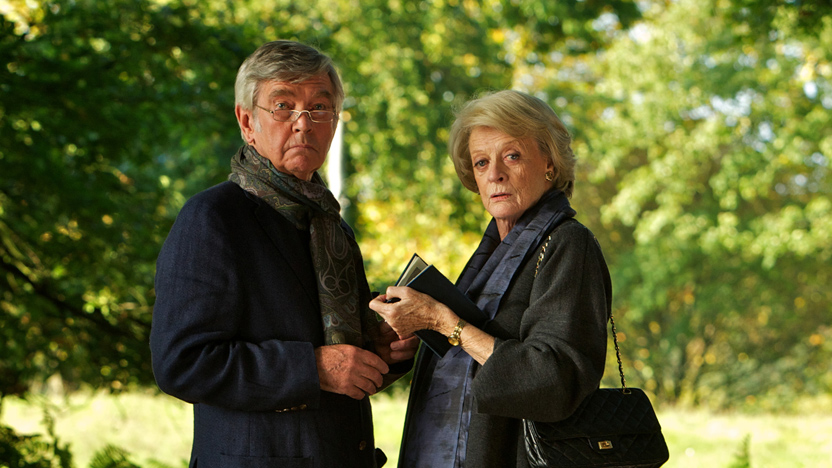Title: Quartet
Director: Dustin Hoffman
Starring: Maggie Smith, Billy Connolly, Michael Gambon, Tom Courtenay, Pauline Collins, Sheridan Smith
A tepid autumnal dramedy aimed at aging boomer fans of arthouse fare like “The Best Exotic Marigold Hotel,” “Mao’s Last Dancer” and “The Full Monty,” “Quartet” represents Dustin Hoffman’s directorial debut, but it’s shot through with so little in terms of conflict, stakes or even passion as to leave one questioning the very reason for its existence, let alone the legendary actor’s attachment to the material. Though rooted in a true story, the thinly sketched “Quartet” fails to ignite either much excitement of imagination or identification, resulting in an amiable bore.
The film unfolds at Beecham House, a special British retirement home exclusively for elderly musicians. Under the care of Dr. Lucy Cogan (Sheridan Smith), Cedric Livingstone (Michael Gambon, sporting a series of drapes with sleeves) holds court with his old, renowned colleagues, including genius composer/arranger Reggie Paget (Tom Courtenay), the rascally Wilfred Bond (Billy Connolly) and the ever-hospitable Cissy Robson (Pauline Collins). Their memories and bodies may be variously failing them by degrees, but they find solace in one another’s company. However, the arrival of superstar soprano soloist Jean Horton (Maggie Smith), Reggie’s ex-wife, throws their peaceful and ordered world into disarray. They try to recruit Jean into a staging of one of their more memorable works for a gala fundraising concert that will benefit Beecham House, but she remains stubbornly resistant until her old competitive instincts are finally re-awakened.
Adapted by Ronald Harwood from his own late-1990s stageplay, “Quartet” unfolds with a respectful and respectable, well-heeled polish, seeming to believe that its admittedly wonderful cast lends it an automatic sophistication which inoculates it against charges of tedium. Cinematographer John de Borman delivers warmly hued scenes that complement the on-screen bonds, and Hoffman’s location staging takes nice advantage of the grounds of Buckinghamshire’s Hedsor House.
The film, though, doesn’t offer much in even the way of programmatic uplift. Mannered to its core, “Quartet” is meant to be the cinematic equivalent of a refined, mid-afternoon snack of tea and biscuits (no small wonder, then, that Leonard Maltin dubbed it “as easy to take as a freshly baked scone with Devonshire cream”). But its characters are so direct in their emotional reactions, and of a piece in their articulations, that the film takes on the swift, no-nonsense narrative qualities of a small screen serial, absent any sort of life-and-death stakes. There’s some talk about the Beecham House needing money to stay in business, but there is no face of antagonistic opposition given to this loosely defined threat — and in short, no layered motivations or engaging subtleties at all. Wide berth is given to the performers, and Smith and Connolly — who, as an unapologetic flirt, gets many of the movie’s best lines — in particular deliver superlative turns. “Quartet,” though, offers up a bunch of characters in service to an empty story.
Technical: B
Acting: B-
Story: D+
Overall: C-
Written by: Brent Simon

